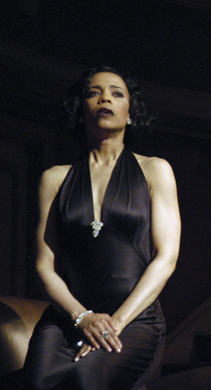
|
MY FAIR LADY
|
|
|
|
MY FAIR LADY
GUIDE Profile By Lawson Taitte / The Dallas Morning News My Fair Lady gives you two masterpieces for the price of one. Of course, the 1956 mega-hit ranks as one of the most popular and most revered Broadway musicals of all time. Alan Jay Lerner and Frederick Loewe compiled a song list including such memorable tunes as “I Could Have Danced All Night” and “On the Street Where You Live.” At the same time, Mr. Lerner’s book reproduces great chunks of George Bernard Shaw’s Pygmalion verbatim. Lots of us think that Pygmalion, in fact, is the finest work by that top 20th-century playwright. All this isn’t lost on Richard Hamburger, who’s directing the musical for the Dallas Theater Center. “This is one of the greatest pieces of adaptation ever written,” Mr. Hamburger says. “It retains the spirit of the Shaw but adds the tension and sweep of American show business and those entrancing melodies.” Both pieces tell the story of Henry Higgins and Eliza Doolittle. Higgins, a cantankerous bachelor expert on linguistics, wagers that he can take any young woman off the street and pass her off as a grand lady – because he can teach her to speak the way that upper-class people do. He selects Eliza as the object of his experiment. Gradually he is forced to realize that she isn’t just an object but a human being... and a woman. Of course, My Fair Lady hardly counts as a rarity (the Dallas Summer Musicals presented a notable version less than three years ago) while Pygmalion hasn’t been seen hereabouts in many a year. The Theater Center, moreover, is mounting a chamber version, where a few actors play all the secondary roles and sing the chorus parts. Wouldn’t it have been a more responsible use of resources to do the original Shaw? “First of all, My Fair Lady is certainly more accessible to most people,” Mr. Hamburger counters. In an economic environment where theaters have to bring in as much income as they can, that’s important. Besides, the musical comedy version plainly captivates this director. The main difference between the two works, aside from all those great songs, comes in the final scene. Eliza has rebelled because of Higgins’ insensitive treatment of her. When she is gone, he realizes how much he misses her. In the Shaw original, Eliza persistently protests her independence. Mr. Lerner none too subtly suggests that they get together romantically in the end. Mr. Hamburger hints that he wants to have it both ways. In his production of Shakespeare’s All’s Well That Ends Well, he went so far as to play the final scene twice, ending the play on two different notes almost simultaneously. You shouldn’t count on hearing “I’ve Grown Accustomed to Her Face,” the final song in My Fair Lady, twice. But don’t be surprised if there’s a certain ambiguity in the way Mr. Hamburger plays that finale. After all, this man really does want to give us both Pygmalion and My Fair Lady. |
|
© Richard Hamburger, Theater Director Site design and maintenance by Amy Lacy.
|



